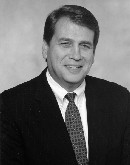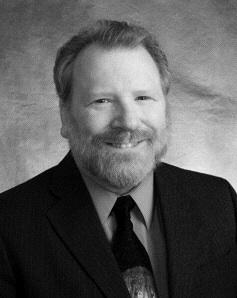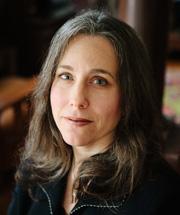
Victimology is the study of victimization, including the psychological effects on victims, the relationship between victims and offenders, the interactions between victims and the criminal justice system—that is, the police and courts, and corrections officials—and the connections between victims and other social groups and institutions, such as the media, businesses, and social movements.

In law, fraud is intentional deception to secure unfair or unlawful gain, or to deprive a victim of a legal right. Fraud can violate civil law or criminal law, or it may cause no loss of money, property, or legal right but still be an element of another civil or criminal wrong. The purpose of fraud may be monetary gain or other benefits, for example by obtaining a passport, travel document, or driver's license, or mortgage fraud, where the perpetrator may attempt to qualify for a mortgage by way of false statements.

In criminology, corporate crime refers to crimes committed either by a corporation, or by individuals acting on behalf of a corporation or other business entity. For the worst corporate crimes, corporations may face judicial dissolution, sometimes called the "corporate death penalty", which is a legal procedure in which a corporation is forced to dissolve or cease to exist.

The term "white-collar crime" refers to financially motivated, nonviolent or non-directly violent crime committed by individuals, businesses and government professionals. It was first defined by the sociologist Edwin Sutherland in 1939 as "a crime committed by a person of respectability and high social status in the course of their occupation". Typical white-collar crimes could include wage theft, fraud, bribery, Ponzi schemes, insider trading, labor racketeering, embezzlement, cybercrime, copyright infringement, money laundering, identity theft, and forgery. White-collar crime overlaps with corporate crime.

Stanford Law School (SLS) is the law school of Stanford University, a private research university near Palo Alto, California. Established in 1893, it has regularly ranked among the top three law schools in the United States by U.S. News & World Report since the magazine first published law school rankings in the 1980s and has ranked second for most of the past decade. In 2021, Stanford Law had an acceptance rate of 6.28%, the second-lowest of any law school in the country. Since 2019, Jennifer Martínez has served as its dean.

The Georgetown University Law Center is the law school of Georgetown University, a private research university in Washington, D.C. It was established in 1870 and is the largest law school in the United States by enrollment and the most applied to, receiving more full-time applications than any other law school in the country.
Skinner v. State of Oklahoma, ex rel. Williamson, 316 U.S. 535 (1942), is a unanimous United States Supreme Court ruling that held that laws permitting the compulsory sterilization of criminals are unconstitutional as it violates a person's rights given under the 14th Amendment of the United States Constitution, specifically the Equal Protection Clause, as well as the Due Process Clause. The relevant Oklahoma law applied to "habitual criminals", but the law excluded white-collar crimes from carrying sterilization penalties.
A false statement is a statement that is not true. Although the word fallacy is sometimes used as a synonym for false statement, that is not how the word is used in philosophy, mathematics, logic and most formal contexts.
Quinn Emanuel Urquhart & Sullivan, LLP is a global white shoe law firm headquartered in Los Angeles, California. The firm employs approximately 800 attorneys throughout 23 offices around the world.
Making false statements is the common name for the United States federal process crime laid out in Section 1001 of Title 18 of the United States Code, which generally prohibits knowingly and willfully making false or fraudulent statements, or concealing information, in "any matter within the jurisdiction" of the federal government of the United States, even by merely denying guilt when asked by a federal agent. A number of notable people have been convicted under the section, including Martha Stewart, Rod Blagojevich, Michael T. Flynn, Rick Gates, Scooter Libby, Bernard Madoff, and Jeffrey Skilling.

Joe Dally Whitley is an American lawyer from Georgia who was the first General Counsel for the United States Department of Homeland Security. He works in private practice at Baker Donelson and has been named a Super Lawyer, listed in The Best Lawyers in America®, named a ‘’2019 Lawyer of the Year’’, is AV® Preeminent™ Peer Review Rated by Martindale-Hubbell, and listed in Chambers USA: America's Leading Business Lawyers.
Brendan V. Sullivan Jr. is an American lawyer who is currently a senior partner in the law firm Williams & Connolly. Sullivan is a white-collar criminal defense attorney best known for his defense of U.S. Marine Lieutenant Colonel Oliver North in the wake of the Iran-Contra scandal in the late 1980s. He is known for his combative style and several prosecutors have been fired, disbarred, or jailed for prosecutorial misconduct Sullivan had uncovered.

Virginia Mary Kendall is an American attorney and jurist serving as a United States district judge of the United States District Court for the Northern District of Illinois. President George W. Bush appointed her to the bench on January 3, 2006. In addition to serving on the bench, Judge Kendall is also a noted expert on child exploitation and human trafficking, as well as an adjunct law professor and author.

William Kurt Black is an American lawyer, academic, author, and a former bank regulator. Black's expertise is in white-collar crime, public finance, regulation, and other topics in law and economics. He developed the concept of "control fraud", in which a business or national executive uses the entity he or she controls as a "weapon" to commit fraud.
Samuel W. Seymour, a lawyer, is of counsel at the firm of Sullivan & Cromwell LLP and former president of the New York City Bar Association.
Michelle J. Anderson is the 10th President of Brooklyn College, and a leading scholar on rape law.
Andrew S. Boutros is an American lawyer, law professor, and former federal prosecutor best known for prosecuting corporate fraud and cybercrime cases. In 2015, the Federal Law Enforcement Officers Association honored him with the National Prosecutorial Award, and he was also elected to the American Law Institute the same year. He is the Regional Chair of Dechert LLP's White Collar practice, where he is resident in the firm's Chicago and DC offices.
Steven Peikin is an American lawyer, who began his career as a prosecutor and later transitioned to white collar criminal defense for the law firm Sullivan & Cromwell, where he was Managing Partner. On June 8, 2017 he was appointed as co-director of the Securities and Exchange Commission (SEC) Enforcement Division, a title he shares with Stephanie Avakian. The division is responsible for overseeing investigations into misconduct in the financial markets and brings civil suits against those who have committed fraud or other financial crimes.

Jennifer Taub is a law professor, advocate, and commentator focusing on corporate governance, financial market regulation, and white collar crime.

Marshall Barron Clinard was an American sociologist who specialized in criminology. Criminological studies spanned across his entire career, from an examination of the Black Market during World War II to much more general treatments of white collar crime. His 1957 textbook Sociology of Deviant Behavior is now in its 15th edition. In addition to studies within the United States, Clinard did research in Sweden, India, Uganda and Switzerland: supported, respectively, by the Fulbright Program, the Ford Foundation, the Rockefeller Foundation and the U. S. National Science Foundation.










